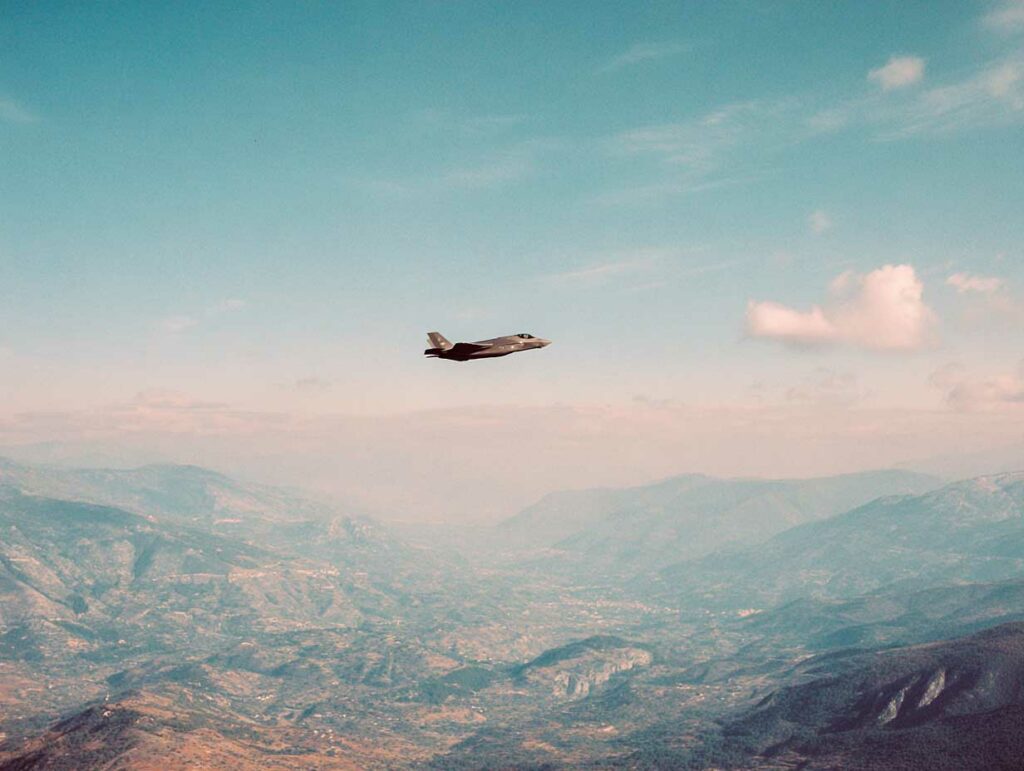
Belgium is questioning its participation in the SCAF, despite an investment of €300 million, after ordering American F-35s. Paris is up in arms.
The SCAF: an ambitious European project
The SCAF, or Future Air Combat System, is a European program that aims to develop a sixth-generation fighter jet integrated with drones and cloud networks. It is led mainly by France, Germany, and Spain, with Belgium as an observer. The project involves huge investments, estimated at between €50 and €80 billion, with an initial development phase (phase 1B) of around €3 billion over 36 months, shared between the three founding nations. The first flight is scheduled for 2029, with operational service targeted for 2035.
This European component embodies an ambition for technological sovereignty, with industrial roles divided between Dassault Aviation, Airbus Defence and Space, Safran, Thales, MBDA, MTU, and Indra. The SCAF project hopes to create synergy between piloted fighters and autonomous systems, all orchestrated via a tactical cloud, to ensure air superiority for the next generation.

Belgium’s decision: F-35 and SCAF, a double game
Belgium seems to be adopting a two-pronged strategy. It has announced the purchase of 11 additional F-35A aircraft, in addition to the 34 already ordered, to replace its F-16s by 2030. This choice is in line with NATO interoperability, at an estimated cost of $4 billion, which is $600 million less than initial estimates.
At the same time, Belgium has committed to becoming a full partner in the SCAF, with a planned contribution of $300 million for the period 2026–2030. This investment signals a desire to maintain ties with European industry.
This dual commitment raises a dilemma: how to reconcile strategic rapprochement with NATO via the F-35 and industrial alignment with Europe via the SCAF? The gap between pragmatic obligations and ambitious commitments seems to be widening.
A tense reaction from French industry
The intervention of the CEO of Dassault Aviation, Éric Trappier, exacerbated tensions. He strongly criticized the Belgian position, calling it contradictory and even cynical to demand industrial benefits while buying American. He stated that access to the SCAF must be accompanied by a choice of European products, arguing that Belgium was ridiculing the program by watering it down.
These comments provoked a strong reaction from the Belgian government: Defense Minister Théo Francken described Trappier’s remarks as arrogant, pointing out Belgium’s leading role within the EU and NATO. Belgium announced that it would reassess its position on its involvement in the SCAF, while affirming that withdrawal from the program would not significantly affect its overall feasibility.
Strategic and symbolic issues
Strategically, the purchase of the F-35s guarantees immediate operational capability. The F-35s offer stealth, advanced networking, and full compatibility with NATO allies, particularly in a context of regional tensions.
At the same time, the SCAF is a long-term project, but offers a path to industrial revival in Europe. It is an ambitious program, which, if implemented in its entirety, could ultimately ensure true strategic autonomy, provided that massive and consistent investment is made.
Belgium’s choice highlights the gap between immediate operational decisions (purchasing from the US) and industrial aspirations (European cooperation). The symbolism is strong: can we expect benefits from the SCAF while purchasing a flagship aircraft from outside Europe?

Prospects for Brussels and Europe
Belgium is at a crossroads. It needs to clarify its priorities: does it want to be a driving force behind the SCAF, at the cost of partially withdrawing from the F-35 program? Or is it seeking to juggle European support and pragmatic transatlantic alignment?
A complete withdrawal from the SCAF is unlikely: the program has already experienced tensions with Airbus, and the departure of an observer such as Belgium, although symbolic, would not carry much weight industrially. However, uncertainty is weakening the political cohesion of the project, at a time when Europe is still struggling to speak with a common strategic voice.
For Belgium, the challenge is to strike a balance: continuing to equip its armed forces with operational equipment while maintaining a sincere and credible commitment to European defense.
In the clash between industrial sovereignty and strategic necessity, Belgium illustrates the tension between pragmatism and ambition. The challenge remains daunting: to be both a reliable player in the Atlantic Alliance and an active participant in the revival of the European aerospace industry.
War Wings Daily is an independant magazine.